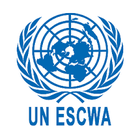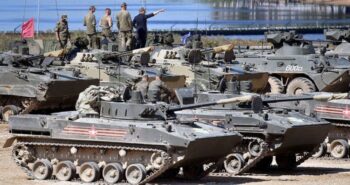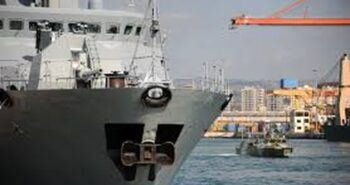
This study seeks to inform the Libya socioeconomic dialogue participants on the costs and losses associated with conflict in Libya when discussing alternative socioeconomic frameworks for the country’s sustainable development.
(I)
Introduction
The Arab Spring has marked a new junction in the political and economic history of many Arab countries. Starting in Tunisia in December 2011, the wind of revolt began to affect many other Arab countries, leading to profound transformations.
The post-revolutionary trajectories in these countries have proven to be quite distinctive. Tunisia is still paving its way between political instability and attempts to rebuild a new development model and a successful transition. In other countries, these transitions have led to armed conflicts that have had major consequences, not only on their populations, but on their economies as well.
Consequently, an economy of war and conflict has settled in three of these countries: the Syrian Arab Republic, Libya and Yemen. The conflicts there have caused significant population displacement and massive destruction of cities and homes.
If no peaceful solution is achieved, the development pathways in these countries could be significantly jeopardized. The protracted conflicts have also had an impact on the economic structure of these countries by destroying not only their factories and farms, but also their infrastructure in general, particularly logistics systems, resulting in an unprecedented decline in exports and imports.
Armed conflicts have also had a significant impact on the economic environment, resulting in a decline in domestic investment and the inflow of foreign investors. The fall in investment has led to a sharp decline in growth and a worsening of macroeconomic imbalances and inflation.
From early on, ESCWA has been interested in democratic transition processes. It sought to accompany countries through various technical assistance programs, suited to the specific dynamics underway in the respective countries.
At the same time, there was significant concern regarding the conflicts that had erupted in other countries around the region. For ESCWA, these conflicts not only affect the development of the economies in question and will lead to a reversal of their sustainable development goals performance, but they will also affect regional cooperation and integration.
Various ESCWA reports and meetings have continued to make a plea for peace and reconstruction in the region.
In this report, we will look at the situation in Libya, which very quickly engaged in a destructive conflict during its political transition. The economic impact of this conflict has deeply affected the Libyan economy.
The conflict has also had a major economic impact on neighbouring countries, including Tunisia, Egypt and the Sudan, with whom Libya has had important economic relations for
many years.
These relationships involved trade, investment, and the presence of a large community of migrant workers from the three countries in Libya. This regional cooperation has been strongly
affected by the Libyan conflict.
The report is part of Libya Socio-Economic Dialogue (Libya SED) process carried out by ESCWA. The project provides a broad and inclusive platform for Libyan experts and stakeholders to formulate, discuss, evaluate, and advocate for strategies for strengthening and building institutional capacity, and formulating a vision and policy
options to support the achievement of sustainable socioeconomic development in the medium- and long-term, in a post-conflict setting.
The project seeks to enhance national and local ownership of the recovery process within the wider political transition process, and to provide technical support for constituencies for reform—networks
or coalitions of Libyan experts and stakeholders who can articulate, protect, and drive forward the agenda for inclusive socioeconomic development.
In this regard, this report seeks to inform the Libya socioeconomic dialogue participants on the impact of the conflict in Libya when discussing the recovery process and the required alternative socioeconomic frameworks for sustainable development in Libya.
This first report will focus on the first phase of the project, which is to measure the impact of the war on the Libyan economy. It will be structured around five sections.
The first section looks at the pre-conflict period and the contribution of the economic factor to the crisis of the political regime. The second section analyses the transmission channels of the crisis to the economy and the population.
Section three presents the model and its database. Section four presents and analyses the results of the simulations, with a focus on the macroeconomic, sectoral and social impacts of the crisis and the reconstruction scenarios. The last section presents a conclusion and formulates some policy recommendations.
________________




